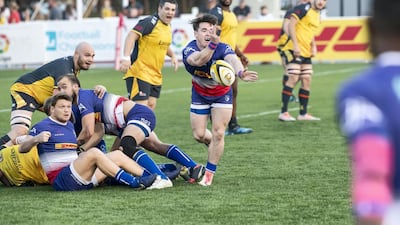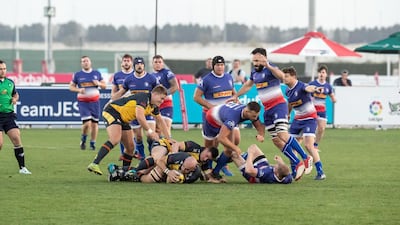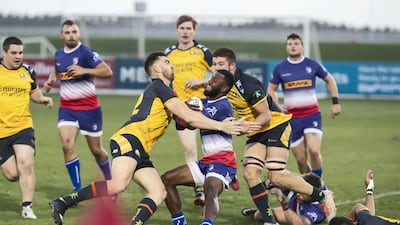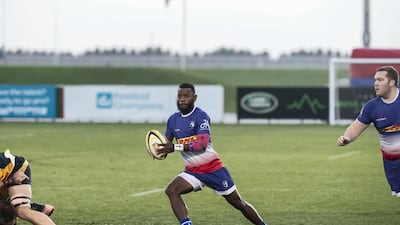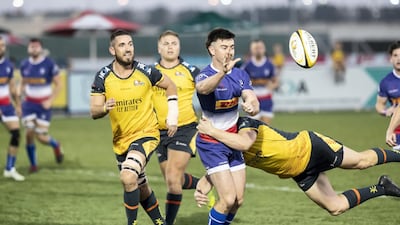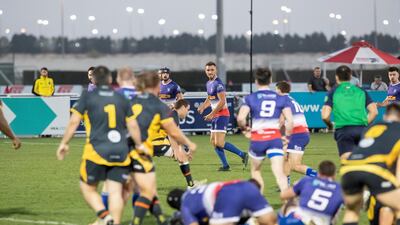Rugby in the region is no closer to restarting after it was announced on Monday that all rugby activities are to be suspended.
The domestic season traditionally starts midway through September. However, no fixtures have yet been decided as a result of the pandemic.
At the start of August, clubs were issued with a 27-page document by the UAE Rugby Federation outlining the procedure for a safe return to training.
Not all clubs had returned to training anyway, and those who had have now been halted again, too.
“Rugby activity is suspended until such time the UAERF [return to play] protocol is approved by the [General Authority] of Sports," the federation said.
All sports are required to produce return to play safety guidelines, and have them approved by the General Authority before activities can be restarted.
A halt was called to the domestic rugby season back at the start of March, just before its finals days could take place.
At the end of May, rugby was among the sports given a brief advisory on what was permitted when the Dubai Sports Council announced the re-opening of sports after the coronavirus outbreak.
That included group coaching with a maximum of 10 participants per session, as well as "no spitting on the ground", and players being required to bring their own equipment.
Then in August, the federation prepared an exhaustive document of its own for a move to “phase two” of returning to play.
The guidelines were created by the federation’s medical committee, led by Dr Alan Kourie, who was formerly part of the South Africa national team’s medical staff.
The measures included mouthguards only being removed during water breaks, rugby balls being sanitised “as often as possible”, and players showering at home.
Training sessions could be no more than 50 per cent of normal capacity, and not exceed 60 minutes, while players “must not blow their nose on the field – tissues will be provided at specific stations at the side of the field”.
It is understood the federation hope to secure permission from the General Authority for an immediate return to the phase two levels of training once their return to play procedures have been assessed.

